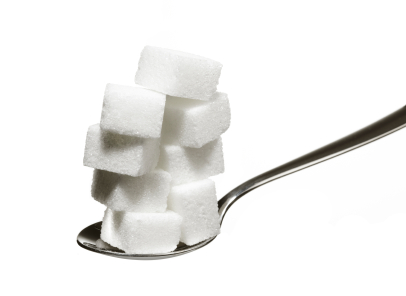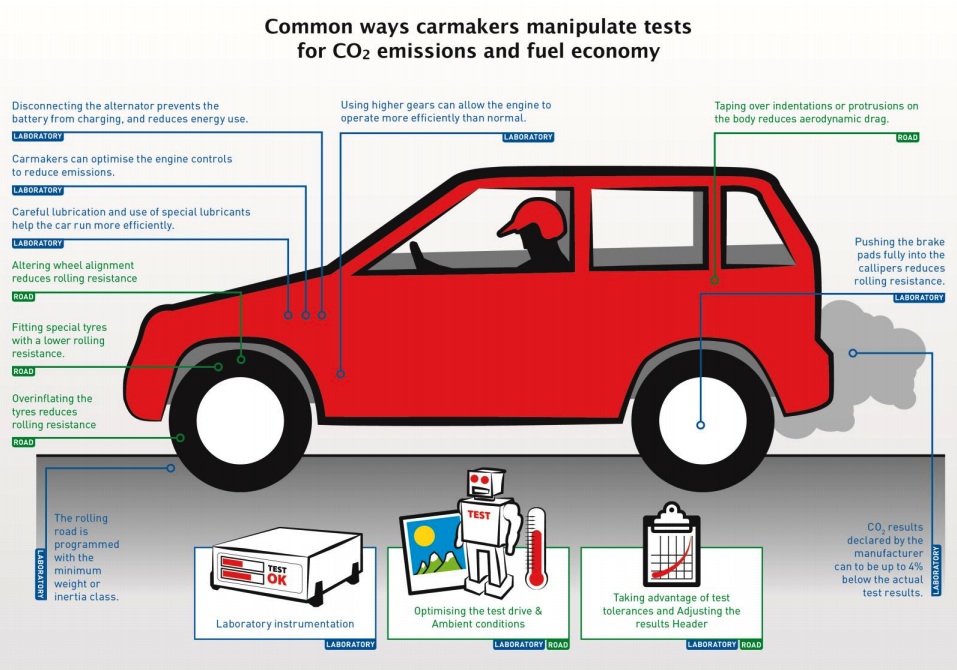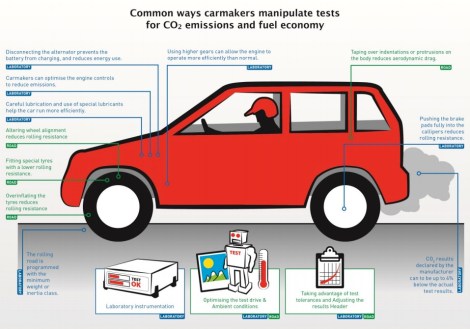When it comes to legit auto fuel-economy data, a new report suggests there may be some sugar in the gas tank.
Activist group Transport & Environment says European car makers are consistently “optimizing” their cars’ performances on fuel efficiency and emissions tests, i.e. cheating. Overall, T&E estimates that European car manufacturers are falsely claiming their cars are 25 to 50 percent more efficient than they really are.
“It’s lots and lots of small tweaks,” T&E’s Greg Archer told the BBC. “And they all add up.”
The report accuses car-makers of all sorts of MacGyver-like fuel-efficiency tricks used just during testing: taping up tiny cracks around doors and windows to reduce air resistance; lightening their cars; using special lubricants; slicking up test tracks; and stopping the car’s battery from recharging. “Creative, but legal,” according to The Guardian.
All that alleged trickery adds up to car drivers thinking they’re getting a more efficient, cheaper vehicle, and officials thinking they’re getting lower emissions and a cleaner environment. From The Guardian:
Greg Archer … says: “This new evidence shows that carmakers in Europe are cheating their own customers by manipulating official tests, which leads to thousands of euros of additional fuel costs for drivers.
“They are also cheating legislators, as EU laws intended to reduce CO2 emissions from cars and vans are only being met in the laboratory, not on the road. The only way to rebuild this trust is by closing loopholes in the current test procedures, to ensure that cheaters never prosper.” …
Raw mileage and emission data is not made public by European carmakers, who only advertise combined figures of laboratory and other tests done on new cars. T&E says it obtained the data on the condition it did not identify the models or manufacturers. Data in the report for the “real world” driving by the public was obtained from online fuel mileage calculators and databases, including Spritmonitor.de, which allows drivers to compare their experiences with million of others.
T&E is calling for new rules that would close testing loopholes. If car companies really have advanced MacGyver skills, now would be a good time to practice. Maybe not for this kind of test drive, though.




